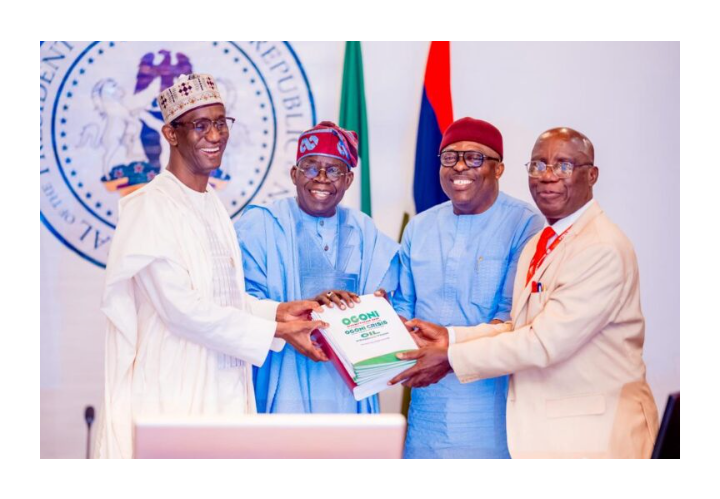Ogoni Leaders Reject Tinubu’s Push To Resume Oil Production

More than three decades after oil production ground to a halt in Ogoniland, the Nigerian government is once again pressing to restart drilling in the region. But the effort, championed by President Bola Ahmed Tinubu and framed by Abuja as part of a broader push for reconciliation and economic revival, has been met with outright rejection from Ogoni leaders who say the move prioritizes crude over justice.
The Ogoni, an ethnic minority spread across four local government areas of Rivers State, have lived with the scars of decades of oil exploitation. Shell Petroleum began extracting oil there in 1957 but withdrew in 1993 amid violent clashes sparked by years of pollution, displacement, and disenfranchisement. The protests reached their tragic climax in 1995 with the execution of Ken Saro-Wiwa and eight other activists — an episode that still reverberates through the community.
Since then, successive governments have floated initiatives to re-enter the area, often through proxy companies and discreet overtures, but without success. Tinubu, who took office in 2023, has sought to reset relations, establishing a Federal University of Environment, issuing posthumous pardons for the “Ogoni Nine,” and this month awarding national honors to four other slain leaders known locally as the “Ogoni Four.” He has also called for renewed oil production, telling Ogoni communities that “a dead asset is not valuable to the community, the country, or the people.”
That approach, however, has drawn scorn from two of the most influential Ogoni organizations: the Movement for the Survival of the Ogoni People (MOSOP) and the Ogoni Central Indigenous Authority (OCIA). In a statement from Port Harcourt, Fegalo Nsuke, MOSOP’s president, accused the government of treating itself as an arbitrator “when it is the abuser in the conflict.”
He condemned what he described as the secrecy of the government’s consultations and rejected a recently submitted report on Ogoniland’s future, saying his group had not been allowed to contribute to its drafting.
“We are deeply concerned about the impact of the federal government’s decision on our mental health and safety,” Nsuke said, calling instead for transparent negotiations that would address long-standing grievances. He demanded the exoneration of the activists executed in 1995 and insisted that any resolution must uphold civil rights and economic justice.
The OCIA voiced similar skepticism. Its president, Dr. Goodluck Diigbo, argued that reconciliation would be impossible without a truth and reparation tribunal modeled on international standards. Such a body, he said, should investigate historic abuses in Ogoniland, recognize what he described as more than 33,000 unnamed heroes, and offer reparations to families and communities harmed by decades of oil extraction. “Only a framework rooted in global law, Indigenous sovereignty, and participatory justice can bring lasting peace,” Diigbo wrote in a letter to President Tinubu.
The federal government, by contrast, maintains that restarting oil production is essential both for Nigeria’s economy and for the development of Ogoniland. A consultation committee led by former MOSOP president Ledum Mitee submitted a report to Tinubu earlier this year, recommending steps toward “responsible oil production” and calling for greater inclusion of local communities in decision-making.
The document, according to officials, also outlines measures for political recognition, environmental cleanup, and economic investment — from jobs and industrial parks to expanded funding for remediation under the Hydrocarbon Pollution Remediation Project, or HYPREP.
For many Ogoni leaders, though, those promises ring hollow. They argue that remediation has been slow, consultations superficial, and economic benefits elusive, while the push for oil resumption has been relentless. To them, Tinubu’s gestures — pardons, honors, and institutions — are seen not as sincere acts of reconciliation but as preludes to renewed drilling.
As Nigeria eyes the oil beneath Ogoni soil, the community’s leaders say they remain steadfast: there can be no resumption of production until past wrongs are acknowledged and repaired. The question now is whether the government’s calculus, built on revenue and resources, can be reconciled with a people still defined by the memory of sacrifice and the demand for justice